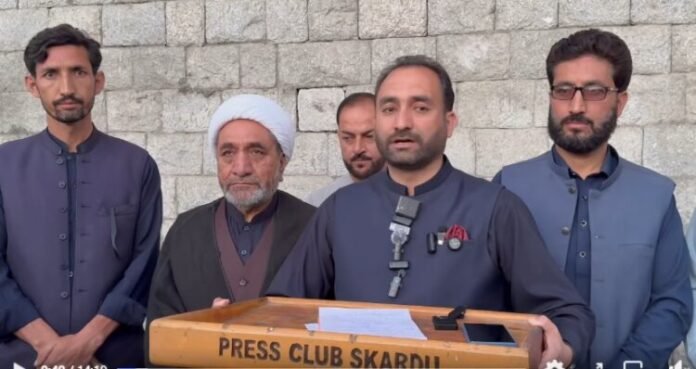SKARDU: A two-day visit of the Senate Standing Committee on Petroleum to Skardu has stirred mixed reactions in Gilgit-Baltistan, where the promise of mineral exploration is overshadowed by fears of exploitation and exclusion.
The committee, led by senior senators, arrived on September 11 to inspect polymetallic blocks in Skardu and review possibilities for future mining of gold, copper, cobalt, and nickel. Briefings have also been scheduled with the Pakistan Mineral Development Corporation (PMDC) and Oil & Gas Development Company Limited (OGDCL) to discuss exploration strategies, joint ventures, and the status of recently awarded mining blocks.
While the federal government describes the visit as a crucial step toward unlocking the country’s mineral wealth, many in GB remain deeply skeptical. Opposition Leader of the Gilgit-Baltistan Assembly, Kazim Maisam, alongside other leaders, held a press conference warning that locals risk being sidelined in decisions about their own resources. “The mountains of GB belong to its people. Any agreements made without our consent will only deepen mistrust,” he said.
The anxiety has intensified following the recent MoU between Pakistan and the United States on mineral cooperation, which has alarmed residents who fear Gilgit-Baltistan could face the same fate as Khyber Pakhtunkhwa and Balochistan, where communities complain of being deprived of benefits from their natural assets.
Adding to the complexity is Gilgit-Baltistan’s unique constitutional position. As part of the larger Kashmir dispute between Pakistan and India, the region is considered disputed territory under United Nations resolutions. Legal experts and nationalist voices argue that any move by Islamabad to lease out GB’s mountains to foreign or domestic companies could invite questions over jurisdiction and further complicate the already sensitive matter of sovereignty.
Nationalist parties in the region have also signaled their readiness to resist moves that ignore local ownership. Some leaders described the exploration drive as a “top-down resource grab” and cautioned that growing discontent could fuel protests if assurances are not given.
The committee’s agenda includes not only site visits but also detailed briefings on geological surveys, feasibility studies, and the licensing history of mining activities across GB during the past five years. Special security, media, and logistical arrangements underscore the sensitivity of the visit.
For many in Gilgit-Baltistan, the issue goes beyond minerals it ties into the larger question of constitutional rights, representation, and control over the region’s assets. Locals insist that genuine development can only come if they are treated as partners, not bystanders, in decisions about their land.
As the Senate team continues its engagements in Skardu, all eyes are now on whether Islamabad can build trust with the people of Gilgit-Baltistan or whether the exploration drive will become another flashpoint in the region’s long struggle for ownership and recognition.




